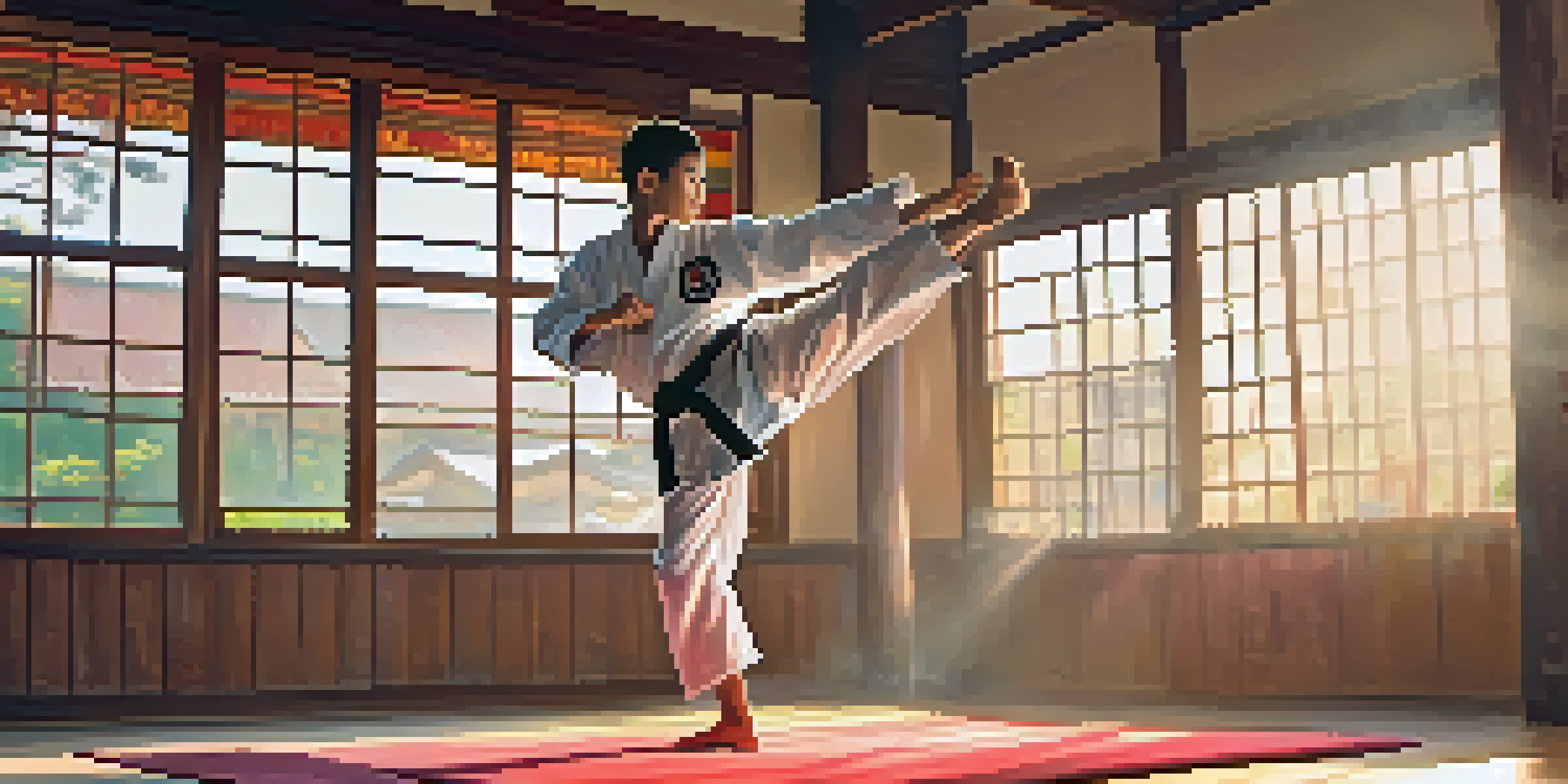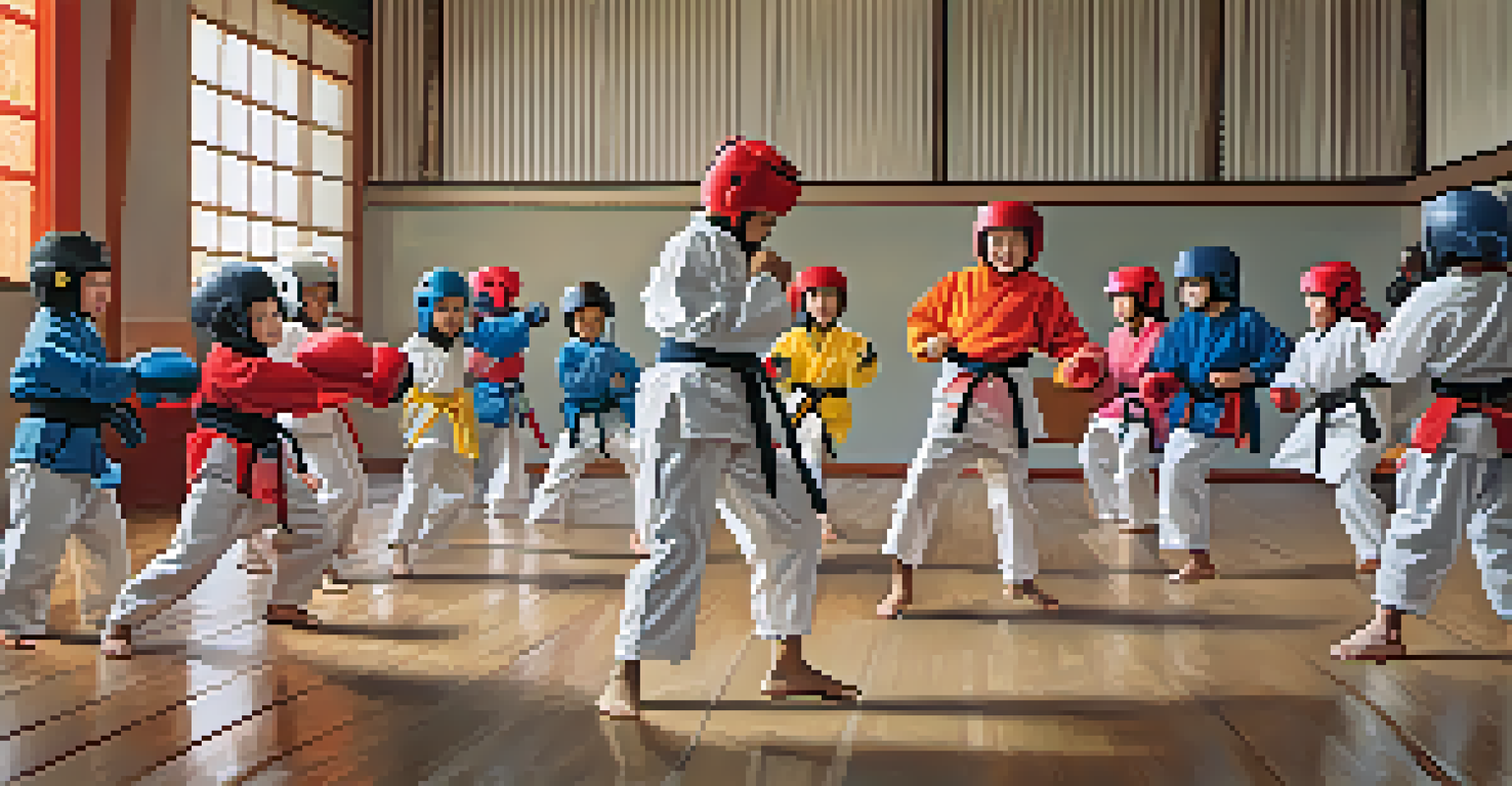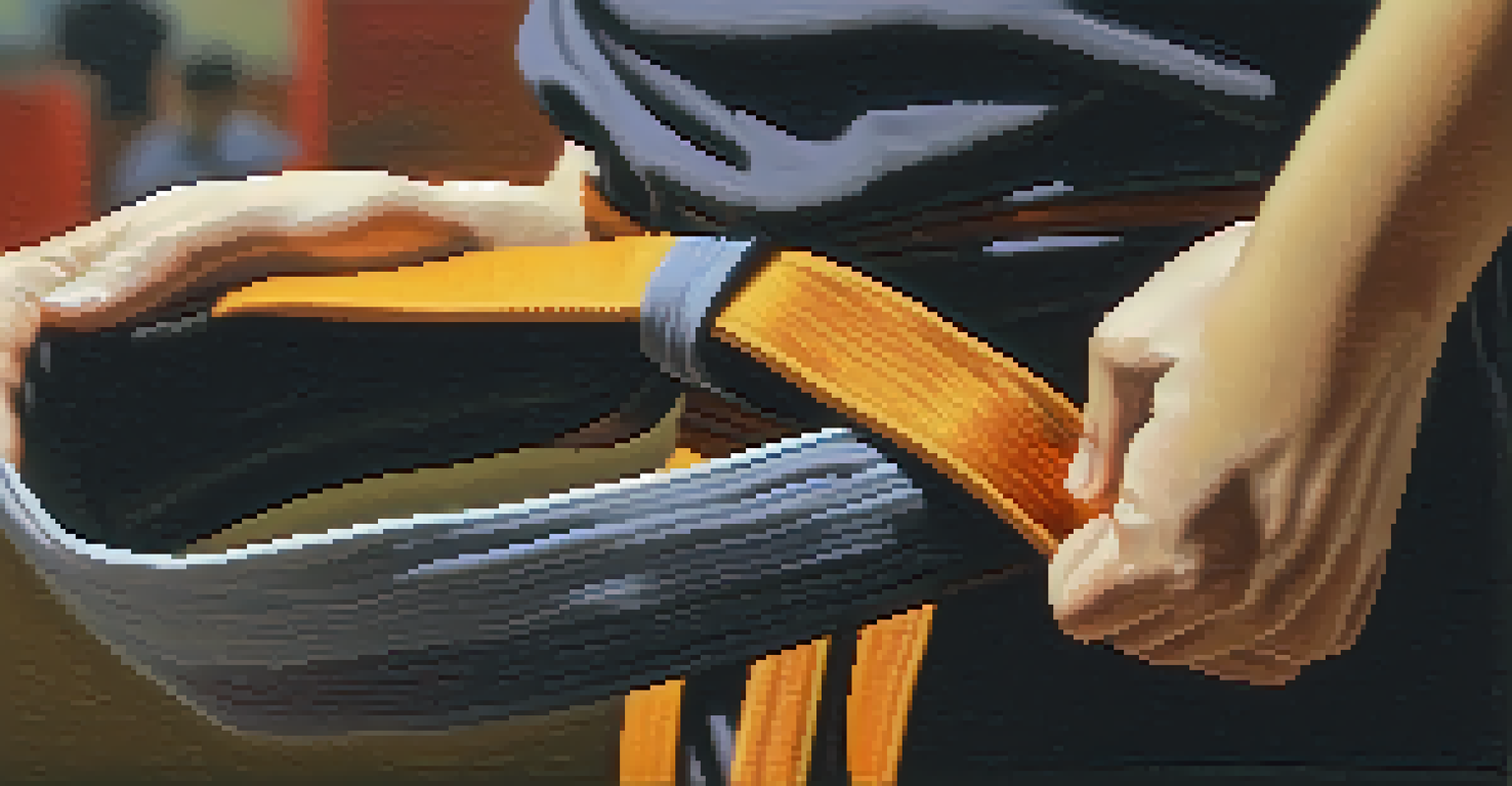Building Confidence in Youth Through Martial Arts Training

Understanding the Importance of Confidence in Youth
Confidence is a crucial trait that empowers young people to face challenges head-on. It influences their willingness to try new things, make friends, and engage in academic and extracurricular activities. When youth feel confident, they're more likely to take risks and learn from failures rather than shy away from them.
Confidence is not something that comes from what you do; it comes from who you are.
Building confidence in youth is not just about feeling good; it significantly impacts their mental health and overall well-being. Kids who believe in themselves are less likely to experience anxiety and depression, and they tend to perform better in school. This foundation of self-belief can lead to a more fulfilling life as they transition into adulthood.
Martial arts training provides a unique environment where confidence can thrive. Through structured classes, students learn discipline, respect, and perseverance—qualities that nurture their self-esteem and empower them to tackle life's obstacles.
How Martial Arts Develops Discipline and Focus
One of the core tenets of martial arts is discipline, which plays a vital role in building confidence. Students learn to set goals, practice consistently, and respect their instructors and peers. This sense of discipline translates into other aspects of their lives, including academics and personal relationships.

Focus is another essential skill fostered in martial arts training. As students learn complex techniques and forms, they must concentrate deeply to execute movements correctly. This ability to focus not only enhances their martial arts practice but also improves their attention span in school and everyday activities.
Confidence Fuels Youth Success
Confidence empowers young people to take risks, engage socially, and excel academically.
By mastering discipline and focus, youth gain a sense of accomplishment that reinforces their confidence. Each belt they earn or skill they perfect serves as a tangible reminder of their hard work and dedication, motivating them to continue pushing their limits.
The Role of Goal Setting in Martial Arts
Setting and achieving goals is a fundamental part of martial arts training. Students are encouraged to establish personal objectives, whether it's mastering a specific technique or earning a new belt. This process of goal setting instills a sense of purpose and direction.
The only way to achieve the impossible is to believe it is possible.
When young individuals accomplish their goals, no matter how small, they experience a boost in confidence. Each achievement acts as a building block, reinforcing their belief in their abilities and encouraging them to set even more ambitious goals. This cycle of achievement fosters a growth mindset, essential for lifelong learning.
Goal setting in martial arts teaches youth the value of persistence. They learn that hard work and dedication are necessary to overcome challenges and achieve success, which is a powerful lesson that extends well beyond the dojo.
Building Social Skills Through Team Activities
Martial arts often involve group activities, sparring sessions, and partner drills, which provide an excellent opportunity for youth to develop social skills. These interactions help them learn how to communicate effectively, cooperate with peers, and navigate social dynamics in a supportive environment.
As students engage with their classmates, they build friendships that contribute to their sense of belonging. Feeling connected to others can significantly enhance a young person's confidence, as they realize they are part of a community that shares similar goals and interests.
Discipline Builds Lasting Skills
Martial arts instills discipline and focus, teaching youth the importance of goal setting and persistence.
Additionally, martial arts fosters respect and empathy. Students learn to appreciate each other's strengths and weaknesses, which promotes a culture of support and encouragement. This sense of camaraderie can be a powerful confidence booster, helping youth feel valued and understood.
Overcoming Challenges and Building Resilience
Martial arts training presents various physical and mental challenges, from mastering tough techniques to overcoming fear during sparring. By facing these challenges head-on, students learn resilience—the ability to bounce back from setbacks and keep striving for improvement.
Each time a young person pushes through a difficult moment in training, they gain not only confidence in their physical abilities but also a stronger belief in their mental toughness. This resilience translates to other areas of their lives, helping them cope with academic pressures, peer relationships, and personal struggles.
The process of overcoming challenges in martial arts teaches youth that failure is not the end, but rather a stepping stone to success. This mindset is invaluable, as it encourages them to view challenges as opportunities for growth rather than insurmountable obstacles.
Physical Fitness and Its Impact on Self-Esteem
Engaging in martial arts training promotes physical fitness, which is closely linked to self-esteem. As youth become stronger and more agile, they develop a positive body image that enhances their overall confidence. Feeling good about their physical abilities can significantly influence how they perceive themselves.
Regular physical activity also releases endorphins, the body's natural mood boosters. This can help reduce feelings of anxiety and depression, allowing youth to approach challenges with a more positive outlook. When they feel good physically, it naturally translates to improved mental well-being.
Resilience Through Challenges
Facing and overcoming challenges in martial arts fosters resilience, helping youth navigate life's obstacles.
Moreover, martial arts teaches students about health and wellness, encouraging them to adopt a balanced lifestyle. Understanding the importance of taking care of their bodies reinforces their sense of agency, empowering them to make healthier choices that further boost their confidence.
Encouraging Lifelong Skills Beyond the Dojo
The skills and lessons learned in martial arts extend far beyond the training mat. Youth are equipped with valuable life skills such as discipline, focus, resilience, and effective communication. These attributes become part of their character and serve them well in various aspects of life.
As they grow older, individuals who have trained in martial arts are often better equipped to handle life’s challenges. The confidence and self-belief developed during their training help them navigate the complexities of adulthood, whether in their careers or personal relationships.

Ultimately, martial arts training empowers youth not just as martial artists, but as confident, capable individuals ready to take on the world. The journey they embark on in the dojo lays the foundation for a fulfilling and successful life.